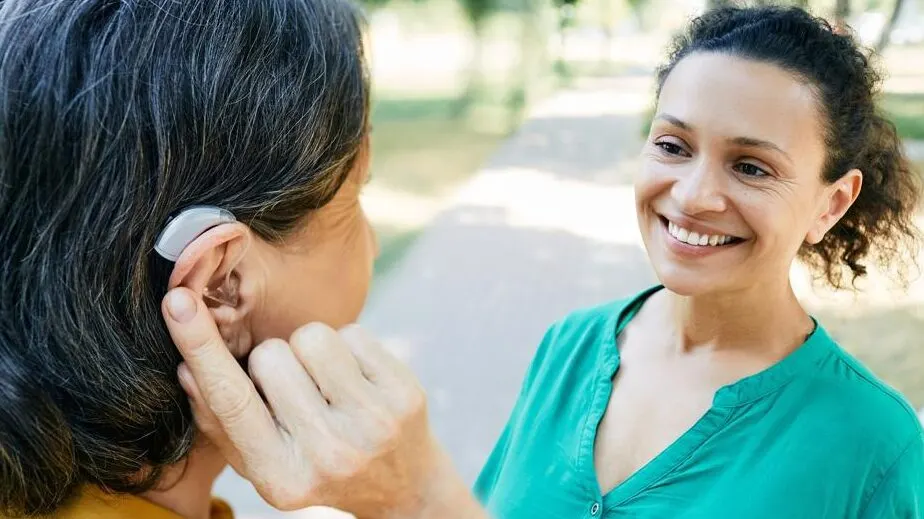Chicken pox is a contagious viral disease that is more common amongst children. However, that does not mean that teenagers or adults are not affected by it. The rate of adults being affected by chickenpox is lesser particularly because in most of the cases they already had the infection as a child which resulted in the generation of immunity in the body and hence the virus is no more able to infect them. There are also shots that immunize against chicken pox. If a child or adult gets chickenpox even after being immunized the severity of the infection is invariably much lesser.
Chicken pox is caused by the Varicella zoster virus and it might infect the same person more than once. However, the intensity of the infection reduces after a full blown first time infection. Chicken pox has some serious symptoms that are painful and can completely disrupt the normal life of the child or the adult infected. However, the infection is usually cured within 15-21 days even if it is not medically treated. It is important to keep some points in mind during chicken pox in order to ensure quick recovery as well as to not spread the infection. Before we move on to the dos and don’ts during chicken pox we will take a quick look at the symptoms of this disease,
Symptoms of chicken pox
Chicken pox is particularly diagnosed from the symptoms as follows,
- Appearance of water filled, small, red and itchy blisters on the body are the most reliable symptom of chicken pox. Chicken pox blisters can come out at any spot and the number and sizes of blisters can vary extensively. The blisters usually appear in less number at first and new blisters continue to appear for the next 3-5 days.
- Headache, weakness and fever are usually accompanied with the itchy blisters of chicken pox. The person infected might also feel severe body pain. Stomach ache can also be observed in some cases. Children and adults with chicken pox commonly suffer from complete lack of appetite.
Dos during chicken pox
If you or your child have got chicken pox infection it is important to follow the next points,
Get medical attention immediately
Chicken pox infection cannot be cured with medicine. Once you have got the infection, it will run its due course and get cured on its own. However, immediate medical attention is necessary in order to keep the severity and effect of the infection under control. If the person, who has got the infection, has any other condition or low immunity, in that case it can take a turn for the worst. Even if the person is otherwise healthy, getting immediate medical attention can make the infection less severe.
Antiviral medications taken within 48 hours of appearance of the first chicken pox blister can be most helpful to keep the condition in control. Apart from anti-viral medications, doctor might also prescribe particular analgesic and antipyretic medicines in order to treat the other symptoms like headache and fever.
Calamine lotions are most commonly prescribed for application on the chicken pox blisters to keep the itching within control. Your doctor might also prescribe you anti-histamine medications to reduce the irritation and itching on the skin.
Stay secluded for the time
Chicken pox is a very contagious disease and it is really important that you opt for a as far as possible secluded lifestyle at least for the first week of the infection. Stay at home in a well cleaned and hygienic area. It is also important to keep in mind that chicken pox lowers your immunity even if you are healthy otherwise and hence your chance of catching another severe illness is more likely during this span. By staying indoors and in a clean and hygienic area you not only reduce the chance of spread of the chicken pox infection but will also ensure better protection for yourself.
Make sure that the room where you are staying is well ventilated and is cleaned regularly with effective disinfectants. Staying within the mosquito net is often considered a good option when you have got chicken pox infection as it saves you from mosquito and housefly borne disease and also any further skin irritation or itching that might be caused by these pests.
Maintain proper personal hygiene
Chicken pox is sure to make you feel weak but maintaining proper personal hygiene during this time is really important to ensure quick recovery. Take bath in lukewarm water daily. You can also add a bit of bathing salt in the water or a spoon of baking soda in order to make it more calming for your skin. These will also help in reducing the itchiness on the skin. Use a mild soap or shower gel with anti-bacterial properties. Handmade neem soaps are the best bait in this case. Neem is a strong natural anti-bacterial agent and the handmade soaps contain least chemicals that might cause skin irritation.
Take a simple but protein rich diet
Lack of appetite is a common symptom of chickenpox. When you have the infection, your digestive system is not surely functioning at its best and hence opting for a simple and easy digestible diet during this span is necessary. Opt for foods that are digested easily instead of the foods that are more difficult to deal with for the digestive system.
Well cooked Vegetables and well washed fresh fruits are certainly the best pick during chicken pox. There is an old custom in India of not eating proteins during chicken pox but according to the latest treatments suggested by the doctors, when you have a chicken pox infection including sufficient amount of protein in your diet is actually important.
The infection results into weakness and protein is the best food that can help the body to recover and regain quickly. However, in order to make sure that the protein rich diet is not heavy on your digestive system it is important that you take easy digestible animal proteins in a well-cooked form that is not rich or spicy. Boiled or lightly fried fresh fish, chicken stew are some of the best protein rich foods that you should include in your daily diet during chicken pox.
Wear loose fitting body covering clothes
When you are suffering from chickenpox opting for tight fitting cloth is not certainly a good idea. Tight fitting clothes will make the skin irritation or itching sensation even more severe. Opt for light cotton clothes that leave enough space for the movement of air which will help in quick drying out of the blisters and will not let your skin sweat a lot. Wearing covered clothes will provide an extra layer of protection on the skin, helping it to stay dry and free from dirt in the air. It will also cover up the blisters, reducing the chance of removing the thin skin on the blister unconsciously.
Take lots of fluids
Drinking lots of water and including more fluids in your daily diet is one of the most common recommendations of doctors during chicken pox. Fluid helps in keeping the body hydrated and plays a very important role in digestion. It also helps in keeping the body temperature low. Dehydration can easily add to the weakness and the symptoms of chickenpox and hence drinking water at frequent intervals and including more fluids in your daily diet is recommended during chicken pox.
Don’ts during chicken pox
A person, child or adult, suffering from chicken pox infection should not do the following in order to stop the disease from spreading and also to ensure quick recovery,
Do not scratch the blisters
The chicken pox blisters are extremely itchy and it might become actually difficult to control the urge to scratch them. However, scratching can rupture the thin skin over the blister which will only worsen it and can also cause spreading of the infection. If needed, cut down your nails to be sure that you do not scratch the blisters even unconsciously. Instead use calamine lotions and antihistamine medications prescribed by the doctor.
Do not share your belongings or cutlery
Sharing your towel, clothes or cutlery when you are suffering from chicken pox is never a good idea. At one hand it increases the chance of the other person using your things to get the infection extensively and also puts you at the risk of contracting any infection that the other person might have. When you have chicken pox, your natural body immunity is highly affected and hence your chance of contracting a new disease is high. So, do not share your things or do not use belongings of someone else till you are completely cured.
Do not indulge in chilled foods
Indulging in chilled foods, starting from chilled water and ice cream might look really comforting when you have a chicken pox infection. Chilled foods can help your body to feel colder which might help with the irritation in the body. However, as during this time your body immunity is low, hence the chance of contracting a cold related disease is high. You might even catch pneumonia during chicken pox if you do not take proper precautions. So, put restrictions on your indulgences.
Do not leave the patient unattended
It is important to keep regular check on the patient suffering from chicken pox. If you cannot attend the patient continuously, make it a point to visit at least once in 30 minutes and more often if the patient is a minor. Chicken pox causes severe weakness which can cause fainting and hence keeping regular check on the patient of chicken pox is vital, particularly for the first 3-5 days.
Do not take aspirin based products
Headache, body ache and fever are some of the common symptoms associated with chickenpox. While Aspirin is a common medicine for problems related to common pains and headache, it should never be given to a child when he or she is suffering from chicken pox. It has been observed that it might be the reason of development of other serious complications at the later years of life.
Special cases
Chicken pox during pregnancy
If you have got chicken pox during pregnancy, it is important that you inform your doctor and follow the exact medications and lifestyle suggested by him during this span. Chicken pox can pass to the fetus from the mother and can result into congenital abnormalities or even death of the fetus. So, take proper precautions and stay in regular touch with your doctor if you have got chicken pox during pregnancy.
Chicken pox with other diseases
If you or your child has an autoimmune disease and have got the chickenpox infection, before taking any measure you should consult your doctor. Chicken pox affects the immunity system seriously and if the patient already has autoimmune conditions it can be really critical to treat. So, get medical attention at the earliest. If the body immunity of the patient is low, chicken pox might even take turn to other severe conditions, like pneumonia or encephalitis which is more common amongst children and elderly.





